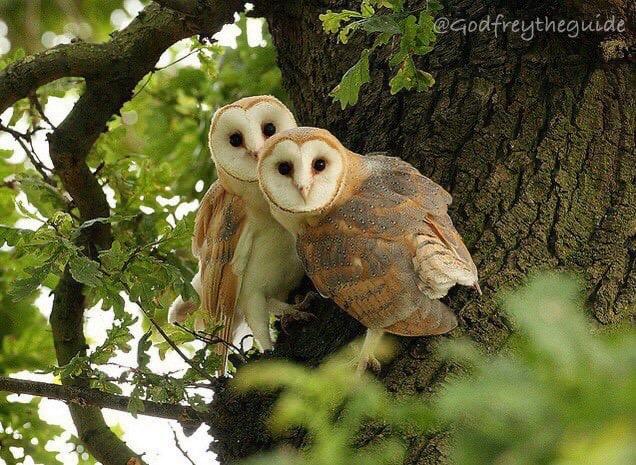The Cornell Lab Bird Academy › Discussion Groups › Birding Tips › How to find owls.
-
I try to find a tropical screech owl or a barn owl, but i can´t. Do you know how to find them?You must be logged in to reply to this topic.
-
Thank you for all your tips. I have now successfully seen with your help the tropical screech owl, the black and white owl, and the spectacled owl!
-
If there are no records of any sightings, going out to woods ad bushes, forests and agricultural areas where owls can find lots of prey such as mice, voles and shrews. While there and you happen to spot something like a whitewash from a distance, you be sure to check the tree with binoculars before approaching closer. If you're lucky, the owl will be sitting motionless, camouflaged in the branches.

-
Barn owls for sure. Not many barns around anymore for them to roost in occasionally you'll find something but I find the mostly believe it or not in palm trees. You could hear them obviously screeching you can't hear them fly though they're so silent. But when you locate a palm tree that you think might have barn owls,just look at the base. I always find owl pellets at the base. I've known of a nest in the same palm tree for as far as I can remember and recently I walked down to where it was at and my heart just broke, they cut it down. It made me sick. I since then have been harassing the city trying to find out who is responsible for the guidelines of protecting the wildlife during all this development it just made me so angry. Check out your palm trees. I'm in Northern California and we have quite a few. The other owls are great horned owls, burrowing owls, saw whet owls ( I think I spelled it right), the northern screech owl and I think that's it for our area. Where are you located? Good luck I hope this helps 🦉
-
Barn owls for sure. Not many barns around anymore for them to roost in occasionally you'll find something but I find the mostly believe it or not in palm trees. You could hear them obviously screeching you can't hear him fly though they're so silent. But when you locate a palm tree that you know you think might have barn owls and just look at the base I always find out pellets at the base. I've known a few family of barn owls that have nested in the same palm tree for as far as I can remember and recently I walked down to where it was at and my heart just broke cuz they took it down it made me sick. I since then have been harassing the city trying to find out who is responsible for the guidelines of protecting the wildlife during all this development it just made me so angry. But check out your palm trees I'm in California Northern California and that's where I find mine here and we have quite a few. I'm the only other owls we have are great horned owls and burrowing owls and the see there's the northern screech owl and the saw wet owl and I think that's it for our area where are you located? Good luck I hope this helps 🦉
-
Finding owls is a topic discussed in our Bird Academy course: The Wonderful World of Owls Here are a few tips from the course: Owl-Finding Tips Sounds, as well as sights, can be important for locating owls. Learn the songs and calls of your local owls; listen for them at dusk and into early night. Learn the habitat each owl likes. Watch the ground for accumulations of pellets. Watch for whitewash on tree trunks and on the ground. Listen for mobbing birds. A group of smaller birds might make a racket if they find an owl or another bird of prey, a behavior called mobbing. If you hear an avian cacophony in the woods, you might want to trace it; at the center could be an owl! Give birds plenty of space. Work with your local birding club to go owling. By working together as a group with experts, you have a better chance of both finding a bird, and engaging with it responsibly. Learn what an owl looks like when it’s stressed. If you see an owl puff up its body, make itself super skinny, or rock back and forth, you may be stressing it, meaning it’s time to back off or leave the area entirely.
